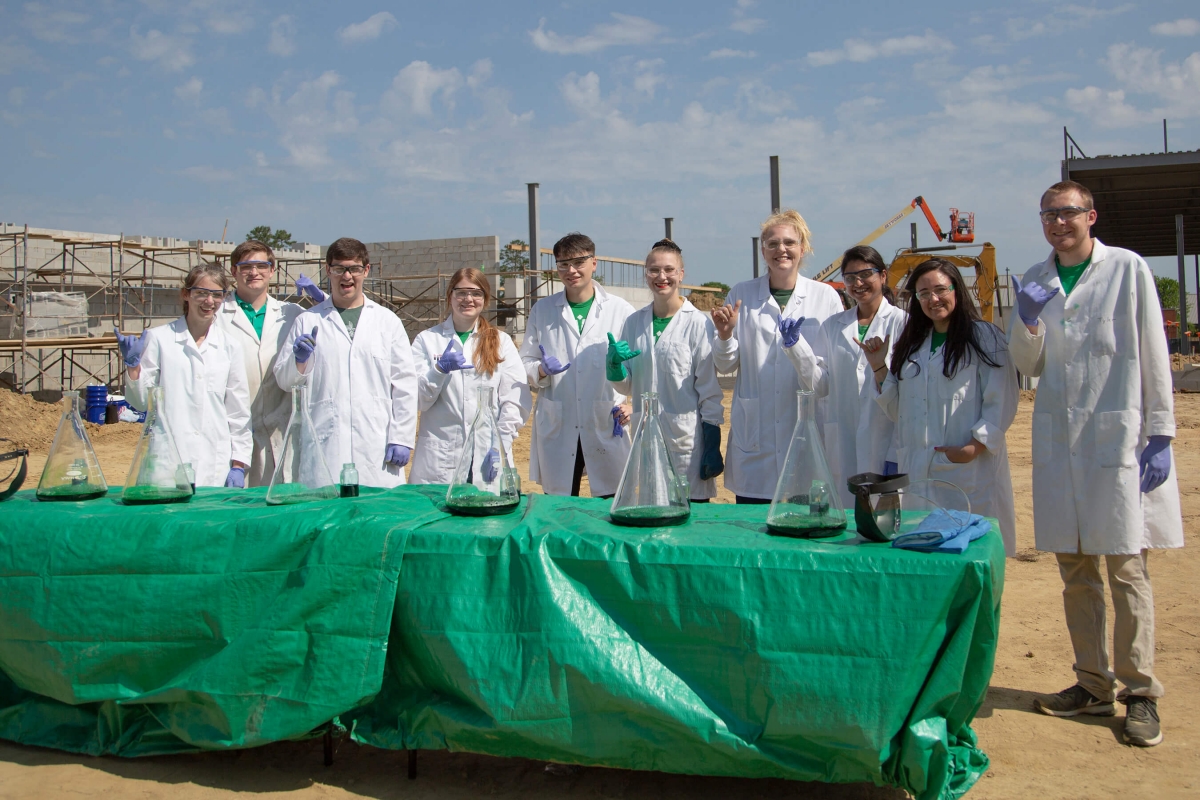 UNC Charlotte broke ground at the corner of Craver and Mary Alexander roads for a new campus facility that, when complete, will reshape the way science is taught and studied at North Carolina’s urban research university. Shared by University leaders and faculty, staff, students, alumni, public officials, community partners and friends, the celebratory event represented the fulfillment of a commitment made in 2016 with the passing of Connect NC, a $2 billion infrastructure bond designated in large part to support the rapid growth of the state’s public colleges and universities.
UNC Charlotte broke ground at the corner of Craver and Mary Alexander roads for a new campus facility that, when complete, will reshape the way science is taught and studied at North Carolina’s urban research university. Shared by University leaders and faculty, staff, students, alumni, public officials, community partners and friends, the celebratory event represented the fulfillment of a commitment made in 2016 with the passing of Connect NC, a $2 billion infrastructure bond designated in large part to support the rapid growth of the state’s public colleges and universities.
“This one-stop-shop for our chemistry, biology and physics programs is an indisputable necessity,” said Chancellor Philip L. Dubois. “Skyrocketing regional employer demand for science, technology, engineering and mathematics (STEM) professionals—compounded by enrollment that has nearly tripled since the 1984 opening of our existing science facility—requires a state-of-the-art solution, which this new building provides.”
The building will offer 130,000 square feet of flexible classrooms and laboratories that will be available when the building opens in 2021. Space in the new building will immediately be at a premium. Additional funding proposals totaling $45 million currently are being considered by the North Carolina General Assembly to renovate the Burson and Cameron academic buildings. If passed, the funds will make possible the updating of labs and development of co-working spaces for faculty and students that are on par with those of the new building.
“UNC Charlotte’s student population likely will surpass 30,000 for the first time this fall; approximately half have declared or will declare a STEM major,” said Provost Joan Lorden. “Our ability to prepare students for work and continuous learning across their lifetimes depends upon our capacity to provide challenging classroom and laboratory experiences in a problem-oriented, 21st-century learning environment. With well-designed teaching, learning and research spaces that promote innovative interdisciplinary collaboration, UNC Charlotte will continue to attract top-notch faculty and students as we make a distinctive impact in STEM fields.”
